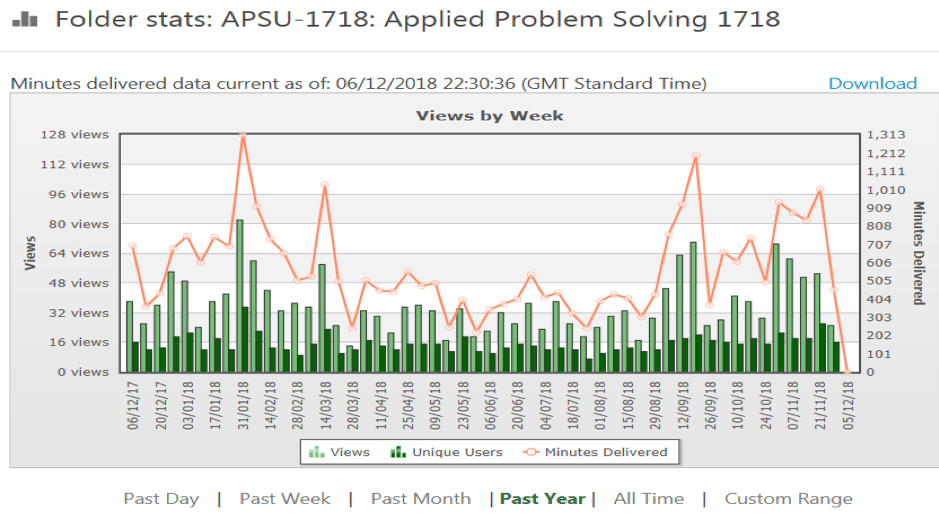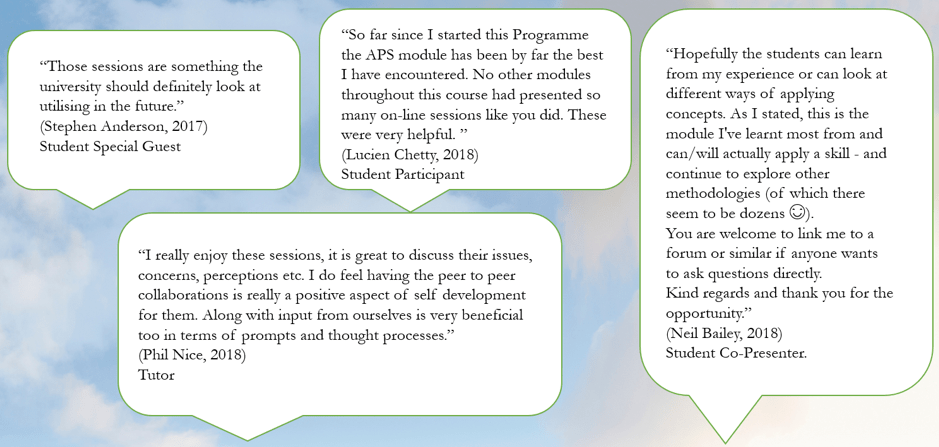To co-produce knowledge with students is a goal I have always had since my University Teacher Training at the University of Lincoln in 2010 when I came across the writing of Vygotsky (1997) who suggests that the social context of learning must be arranged by the teacher so that the student teaches themselves: ‘Education should be structured so that it is not the student that is educated, but that the student educates himself’. Fuelled with the desire to create the context for students to co-produce knowledge, I took the opportunity to work with Prof. Mike Neary as an agent of the ‘Student as Producer’ initiative which has transformed the philosophy and practice of teaching and learning at the University of Lincoln and beyond.
Between 2010 and 2015, I was able to experiment some ideas linked to the creation of the context to enable the co-production of knowledge by the face-to-face students I taught at the School of Social and Political Sciences. However, the opportunity to fully shape the context of learning came when I joined the Lincoln International Business School in 2016. With several ideas and the support of colleagues, we implemented the use of Skype for one-to-one sessions with students studying online. Due to the success recorded with the use of Skype sessions in enhancing the learning of students, the need to scale the number of students attending online sessions led to the use of a more robust technology (Blackboard Collaborate Ultra) which has enabled not just the creation of knowledge but also its storage in a video form thereby allowing students to view seminar sessions co-produced by tutors and students. Evidence demonstrating the use of the video recordings of the Online Drop-in-Sessions is presented in Figure 1 below.

Reflecting over the last 18 months (June 2017 to December 2018), I now appreciate that to create what Vygotsky (1986) termed social learning (peer-to-peer learning) and the Zone of Proximal Development (ZPD) demand for a good use of time, hard work, learning from failure, loyalty to students, persistence and the desire for student learning. The feat achieved with the brilliant and enthusiastic students I have worked with in the last 18 months is due to several factors including the passion to co-produce knowledge with students, the unflinching support of colleagues like Amy Mumby who graciously accepted to deliver some online sessions and Phil Nice who is always keen to ask students who led online sessions probing questions about their learning. Most importantly, the students who yielded to my invitation and announcements to participate in the Online Drop-in-Sessions held monthly and which last for an average of an hour deserve commendation.
In creating the scale of richness associated with face-to-face communication, the use of synchronous communication through Blackboard Collaborate Ultra facilitated two-way communication between the stakeholders co-producing knowledge as the platform allows for the alignment of learning resources in order to achieve optimum communication which is crucial for students studying online (Wood et al., 2018). In addition, the platform is safe as it accommodates all types of learners (introverts and extroverts) while giving the tutor/facilitator the leeway to personalise the delivery of the curriculum thereby enabling flexible learning.
The ability to engage in direct conversation and get instant answers from tutors and peers linked to any theme/concept, work-based problems and features of the module constitute the magnetic features that draw students to the Online Drop-in-Sessions. More importantly, the involvement of students who achieve a grade of 70% + as co-presenters or as special guests in facilitating the Online Drop-in-Sessions evidence the progression and transformation of ‘students as consumers’ to a different level where the so called ‘consumers’ become ‘producers and co-producers’ of knowledge with tutors and other students. This is always one of my happy moments, witnessing the process where students I have worked with take sole/collaborative ownership of their own learning and that of their peers and tutor. While the evidence demonstrating the effectiveness of the use of Blackboard Collaborate Ultra in enabling student learning and the co-production of knowledge is clear, the impact is astonishing as reflected in the feedback of both student facilitators, tutors and participants.
Students who have participated in the online sessions as co-presenters and special guests have emphasized how pleased they are to contribute to the learning of their peers. Few quotes from some of the students and tutors involved in the co-production of knowledge are presented below in Figure 2.

Indeed, I am truly happy to be a part of the learning journey of my students and a part of this institution placing its mark on the Higher Education learning landscape. This is only the beginning, and I am excited about the current and planned initiatives linked to student learning within the Lincoln International Business School.
